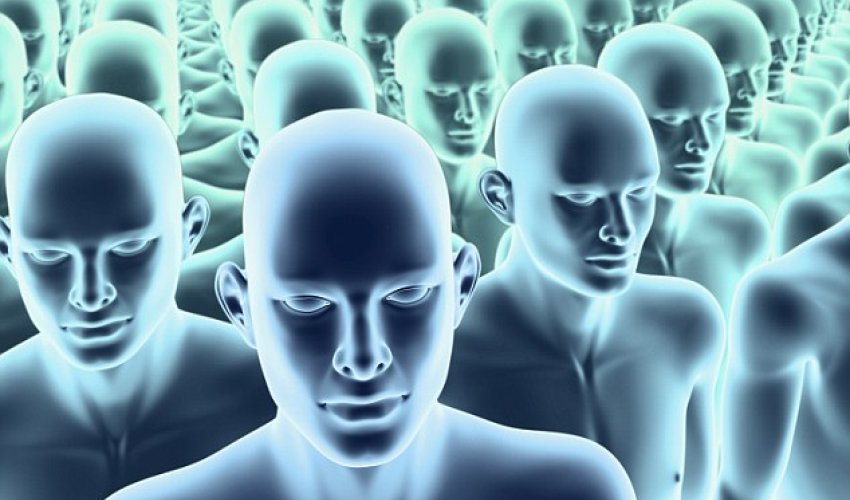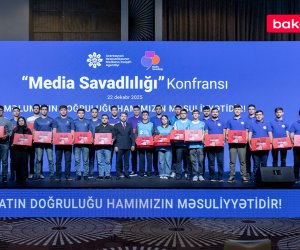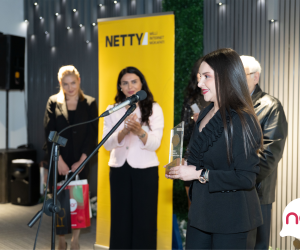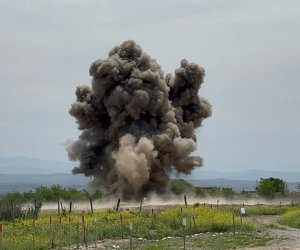Scientist claims technology is ready but public opinion isn't

The Chinese scientist behind the world's largest cloning factory has said that replicating humans is already possible, but he is only holding off doing so for fear of the public reaction.
Xu Xiaochun, head of Boyalife Group, said his firm is already working to improve the cloning of primates in order to better test the animals for diseases.
And he added it is just 'a short biological step' from monkeys to humans.
Boyalife Group and its partners are building the giant plant in the northern Chinese port of Tianjin.
It is due to go into production within the next seven months and aims for an output of one million cloned cows a year by 2020.
But cattle are only the beginning of chief executive Xu's ambitions.
In the factory's pipeline are also thoroughbred racehorses, pets, police dogs specialised in searching and sniffing, and even humans.
'The technology is already there,' Xu told AFP. 'If this is allowed, I don't think there are other companies better than Boyalife that make better technology.'
The firm is not currently carrying out human cloning activities, Xu stressed, to avoid possible adverse reaction.
But, he continued, 'social values can change', citing changing views of homosexuality. He added that, in time, humans could also have more choices about their own reproduction.
'Currently, the only way to have a child is to have it be half its mum, half its dad,' he said. 'Maybe in the future you [will] have three choices instead of one.'
The 44-year-old scientist went to university in Canada and the US, and has previously worked for US pharmaceutical giant Pfizer.
Presenting cloning as a safeguard of biodiversity, the Tianjin facility will house a gene bank capable of holding up to approximately 5 million cell samples frozen in liquid nitrogen.
This would act as a 'catalogue' of the world's endangered species for future regeneration.
Boyalife's South Korean partner Sooam is already working on a project to bring the woolly mammoth back from extinction by cloning cells found in the Siberian permafrost.
Sooam also serves a niche market recreating customers' dogs, reportedly for £66,000 ($100,000) a time.
Earlier this year, Sooam boss Hwang Woo-Suk was quoted in South Korea's Dong-A Ilbo newspaper saying his firm was planning a cloning joint venture in China 'because of South Korea's bioethics law that prohibits the use of human eggs'.
'We have decided to locate the facilities in China in case we enter the phase of applying the technology to human bodies,' he said.
For now, Xu seeks to become the world's first purveyor of 'cloned' beef, breeding genetically identical super-cattle that he promises will taste like Kobe.
This will also allow butchers to 'slaughter less and produce more' to meet the demands of China's booming middle class.
Cloning differs from genetic modification, but its application to animals would enable the firm to homogenise its output.
'Everything in the supermarket looks good - it's almost all shiny, good-looking, and uniformly shaped,' Xu said.
'For animals, we weren't able to do that in the past. But with our cloning factory, we choose to do so now,' Xu said.
'Remember, this is a food. We want it to be uniform, very consistent, very premium quality,' he added.
Whether cloned beef is safe for human consumption is a controversial matter.
Research by the US Food and Drug Adminstration says that it is, but the European parliament has backed a ban on cloned animals and produce in the food chain.
(dailystar.co.uk)
www.ann.az
Similar news
Similar news




































 Photo
Photo 



 Video
Video 

